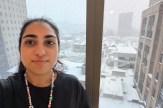Word Detectives trains the next generation of readers — and Northeastern speech-language pathologists
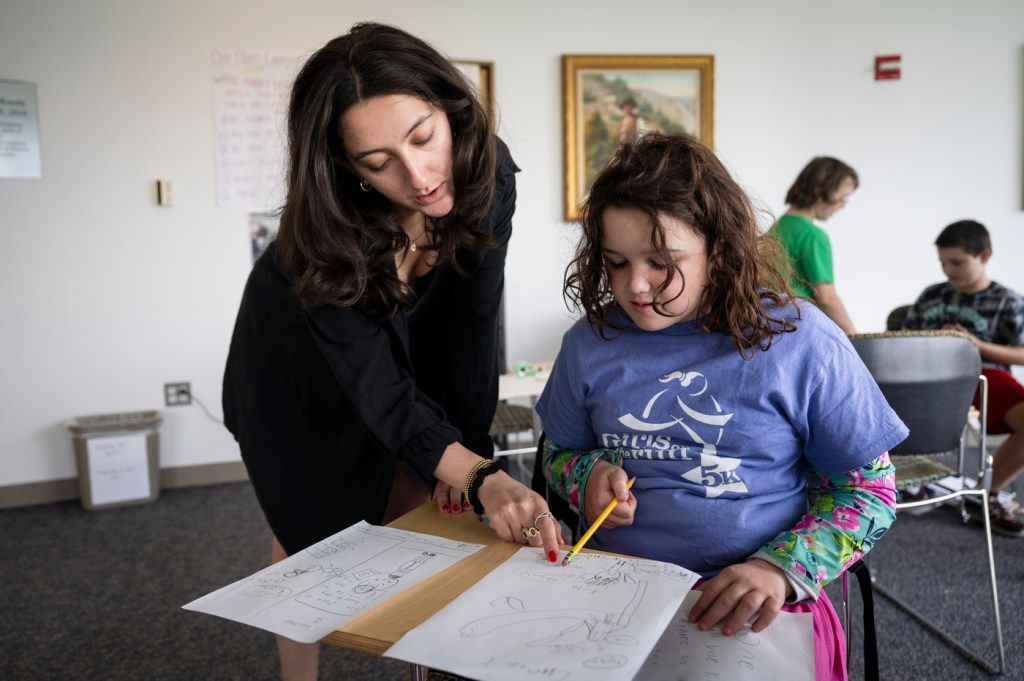
The elementary school-age students spread around the classroom, each looking for six different objects so they could describe what they were made of.
“Window,” exclaimed one student. “It’s made of glass.”
“Ball,” another student shouted. “It’s made of rubber — the rubber ball!”
Five minutes later, the students compiled a master list — a gold bracelet, plastic magnet, cotton ball, linen curtains and more.
But the lesson was not about materials per se, it was a literacy lesson.
“Today we thought of all the ‘made-of’ adjectives,” said Lauren Meltzer, a Northeastern University graduate student clinician who is teaching the young students while working toward her degree as a speech language pathologist. “Tomorrow we’ll do age and design.”
The students are part of Word Detectives, a summer program hosted by the Northeastern’s Speech-Language and Hearing Center, which provides instruction to children entering Grades 2 to 6 who are reading below grade level.
But the program benefits more than just the youngsters — Northeastern graduate students like Meltzer are on the frontline, gaining critical skills they will use as speech-language pathologists.
“Not a lot of people know what speech- language pathologists do — they think of stuttering or a lisp and draw the line,” says Lauren McInnis, who will graduate in May. “But it’s cognition, memory, rehabilitation and more.”
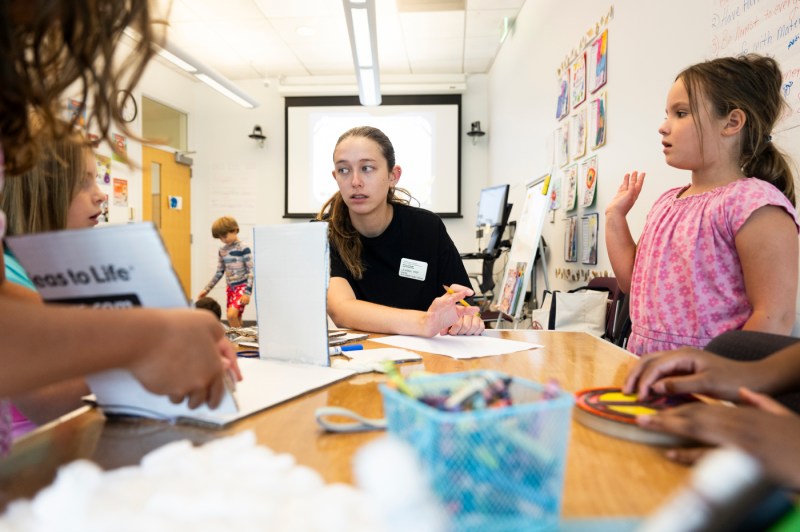
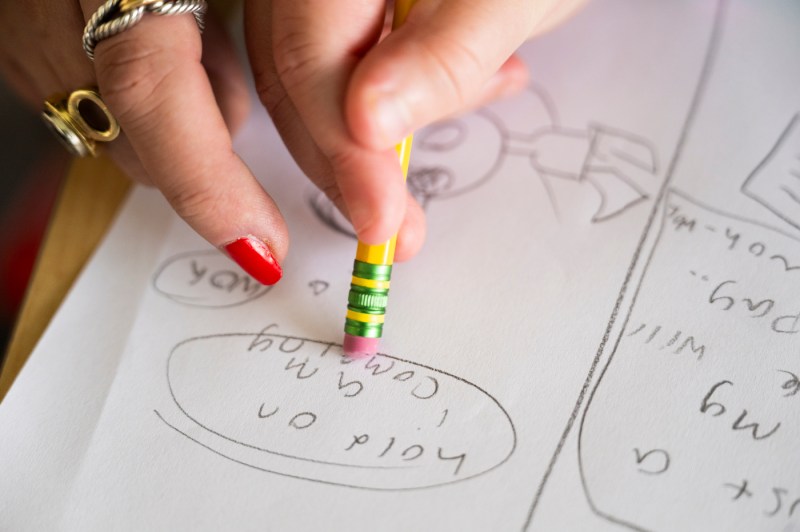
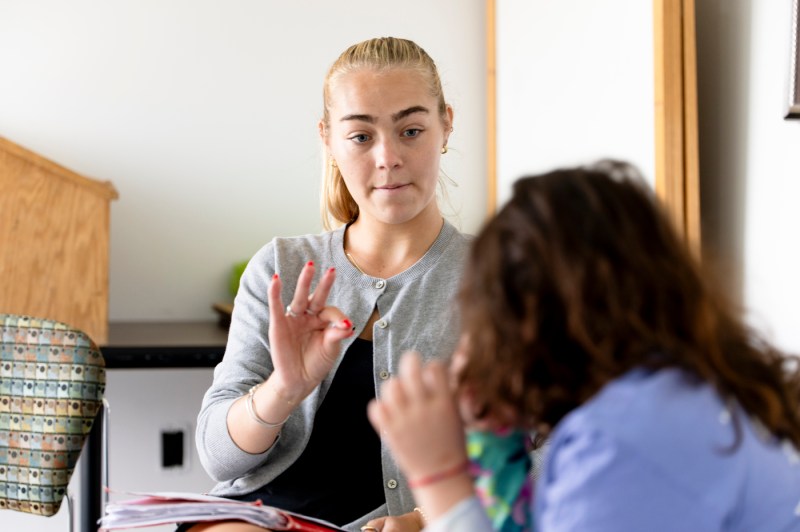
Indeed, in just a half-hour of classroom time this week, the eight youngster “Huskies” had practiced reading aloud, listened intently to a reading of a children’s book about the first women’s college basketball game and then discussed stereotypes, compiled their list of “made-of” adjectives, and broke into small groups for reading using the Wilson curriculum.
It’s a lot of intense learning — and teaching — all packed into a morning program.
But the graduate student clinicians are up to the task.
Speech-language pathologists are equipped with a vast skill set that encompasses supporting reading and writing,” says Sarah Young-Hong, associate clinical professor in the Department of Communication Sciences and Disorders and the Word Detectives program co-director.
“The Word Detectives program allows graduate student clinicians to gain hands-on experiences with teaching children and working with classroom teachers and reading specialists,” Young-Hong continues. “It’s a wonderful opportunity to learn how other professionals teach reading and how we as SLPs can collaborate to support student success.”
Featured Posts
Not that there aren’t challenges.
“There was definitely a learning curve of using teacher language,” McInnis says.
For example, the graduate student clinicians make observations using ‘I see’ or ‘I notice’ to highlight wanted behaviors versus commenting on unexpected behaviors.
Also, the graduate students don’t use extrinsic rewards — for example, no giving out stickers for progress or positive behavior.
“We want the students to develop their own motivation without positive reinforcement from other people,” explained graduate student clinician Leanna Prip. “It’s something I will carry with me — they can have their own motivation without you saying ‘good job.’”
And then there is answering the ever-present questions of children — a challenge when teaching a language where there are so many rules, and exceptions to those rules.
“We’re learning all the spelling rules and then they ask you ‘why?’” graduate student clinician Madeline Smiechowski says.
“So we can make a game for them — let’s sound it out,” Meltzer answers. “But breaking it down to bare bones is really hard. When they ask ‘Why?’ you have to break it down, and then break it down again.”
But the graduate students say that reading really is — as the slogan goes — fundamental.
“I think seeing kids having a hard time reading reveals a lot more issues,” Meltzer says.
Graduate student clinician Kayla Farrell agrees.
“It ties into the speech and language piece a lot,” Farrell says. “If they are struggling reading, they can be struggling to understand directions, and struggling to communicate in the classroom.”
And the graduate students are pleased to make a difference.
“I wanted to make an impact on people’s well-being,” says McInnis.
Prip agrees.
“A lot of it is allowing everyone to have a mode of communication,” Prip says.
And the difference is made for both students in the program and graduate student clinicians.
“For the Word Detectives students, this includes learning to read and write; and for the graduate student clinicians, this is learning how to build and grow that communication for all of their students,” says Young-Hong.






